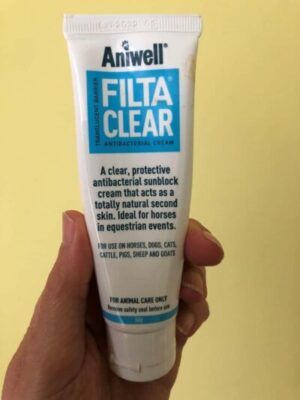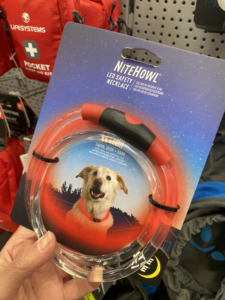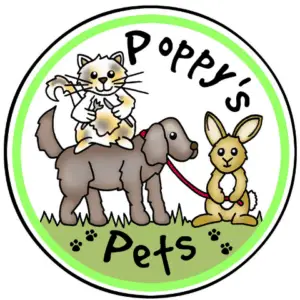My article in the Withernsea & District Community News
Poppy’s Pets
distributed to 9000 homes in East Yorkshire
Owning a pet is a wonderful and fulfilling responsibility that brings happiness and companionship into our lives. However, it also demands careful consideration and proactive measures for safety and to ensure the well-being of our beloved canine and feline companions are met. Drawing from experience in pet ownership, we have compiled a list of 11 indispensable tips for responsible pet guardianship.
Our 11 tips:
Tip 1: Paw Pad Care for Beach Lovers– the paws of our furry friends are their primary mode of exploration and play, especially when frequenting sandy beaches. Yet, sandstones can accumulate between their paw pads, congealing with dirt and fur, leading to painful lumps. To prevent this discomfort, make it a practice to regularly wipe or wash your pet’s paws after each beach excursion. If sandstones do develop, promptly seek assistance from your trusted dog groomer or consult your veterinarian in case of infection.
Well-being recommendation: Regular application of paw or nose balm keeps skin soft and nourished
Watch the Video: Example of a sandstone between paw pads
Tip 2: Firework Therapy for Stress Relief – the startling sounds of fireworks can be an anxiety-inducing experience for many pets, including injury and on rare occasions, cause death for any animal. Dogs Trust offers a unique “firework therapy” solution to familiarise your pet with these sounds throughout the year. Accessible through a controlled setting, you can find a free audio download of this therapy below and I recommend listening to the soundtrack alone first to ensure you are happy with the content.
Download firework therapy: visit Dogs Trust ‘Sounds Scary’ range
Tip 3: The Power of Microchipping – ensuring the safety and swift reunion with your pet during separation is paramount. To achieve this, have a veterinarian or trained implanter insert a microchip into the back of your dog or cat’s neck. Initially, the chip will contain a unique identification number and your pet’s name. Implantation using a veterinary profession is reassuring because you know a genuine database is being used. If opting for an independent implanter, ask which database they use. The database company must be Defra-complaint or you could face a £500 fine.
Register the chip with the microchip company and give them your contact details; consider adding a secondary contact. You will never be reunited with your pet via the chip without these personal details.
Recommended microchip company without annual or monthly fees: PetDatabase – it’s easy to transfer your pet’s existing chip
Watch the Video: The basics of the microchip UK
Key points to remember:
- Contact the microchip database ASAP to add your contact information details
- A microchip can malfunction. Ask your vet to scan the chip during veterinary appointments. Molly’s first chip wasn’t recognised
- The microchip can migrate to another part of the body
- Ask the microchip company to add medical conditions to your pet’s record. The administrator can update the vet or rescue when an animal is scanned. This could save your pet’s life
- Always ensure your contact details are up to date on the microchip database
Tip 4: Identity Tags and Collars in Public – in compliance with the Control of Dogs Order 1992, dogs must wear a collar and an identity tag in public spaces. These tags should prominently display the dog’s name, the owner’s name, and address. Teddy, for instance, wears a tag, and his collar has his name and a mobile number. However, Sussex Police recommend substituting a dog’s name with your surname to prevent thieves from calling your dog.
Visible identification is a sign of responsible ownership and may help reunify quicker.
Recommended tag engraving shop: Country Engraving UK
Tip 5: Medical Alert Tags for Health Issues – pets with specific health issues, such as kidney problems, thyroid disorders, or deafness, can benefit from wearing red medical alert tags on their collars. This simple precaution provides essential information to those who may encounter your pet and require guidance during emergencies.

Tip 6: Sunscreen for Sun Protection – shielding your pets from harmful sun exposure is essential, particularly for those with light-coloured coats, thin or white fur, hairless breeds, or light-pigmented noses and eyelids. Use sunscreen specifically formulated for animals, as human sunscreen may contain toxic ingredients. Apply it to vulnerable areas like eyes, tummy, groin, ear tips, and nose. Over-groomed pets can also be susceptible, underscoring the importance of investing in pet-safe sunscreen products.
Recommended animal-safe sunscreen: Aniwell Sunblock is available at Viovet
Tip 7: Emergency Preparedness for Pet Owners – for those living alone, it is prudent to have contingency plans in place for the care of your pets in case of unforeseen accidents, health issues, or emergencies. Place a card in your wallet or car glove compartment, or attach a tag to car or house keys to alert emergency services about the presence of pets at home.
Alternatively, consider designating a trusted individual with access to your home who can be contacted in emergencies to ensure the welfare of your cherished companions. Stick an emergency card to the fridge, indicating pets are in the house, and include the location of medication and paperwork.


Tip 8: Enhanced Visibility During Nighttime Walks – maintaining your dog’s safety during evening strolls is paramount. Equip your furry companion with an LED flashing collar or tag to ensure maximum visibility in low-light or dark conditions, or in open spaces.
Tip 9: Cost-Efficient Veterinary Medication – ensure you can afford healthcare before adopting or buying a pet. Economical healthcare for your pet is attainable without compromising on quality. Consider purchasing a prescription for medications from your trusted veterinarian and ordering them from accredited online retailers.
For a list of approved retailers, please refer to vmd.defra.gov.uk.
Recommended and accredited pet pharmacies:
Read my article about the pet prescription, what you need to do, and how it works.
You’ll find a selection of non-prescription goods that are lower priced and offer the same quality:
Tip 10: Legal Safeguards for Your Pet’s Future – taking proactive steps to secure your pet’s future is an act of great compassion. Consult your solicitor to explore legal options for safeguarding your pet’s well-being in the unfortunate event of your passing at any age.
Alternatively, you can reach out to the Cinnamon Trust to become your pet’s guardian after your death; it’s important to note that a financial donation may be required. The Trust isn’t the only charity offering pets refuge after your death.
Regardless of your age, life’s unpredictability necessitates thoughtful planning, as our animal companions experience emotions and grief. Too often, pets are left in limbo or surrendered for euthanasia because family members are unable to care for them after a loved one’s demise.
Read my article about choices available to safeguard your pet.
Tip 11: Ensuring Your Cat’s Safety – protecting your feline friend from potential hazards is a paramount concern. Consider the installation of a catio or the cat-proofing of your garden. These measures substantially reduce the risks your cat may encounter outdoors. With an ever-increasing number of cats enjoying the safety of enclosed spaces, these initiatives are both practical and responsible for enhancing your pet’s overall quality of life.
Recommended product:
- Protectapet: cat fencing, commercial fencing, balcony enclosures, catios
- Felisafe: Cat fencing for home installation
- DIY cat-proofing your garden
Read my article about common dangers for cats.
Article published in the Withernsea & District Community News – December 2021
Join me on YouTube
Poppys Pets is a participant in Awin and Amazon Associate affiliate programs which compensates me for referring traffic. It is of no extra cost to you and if thinking of buying a product, please consider using my link. It\'ll earn Poppy\'s Pets a few pennies to continue to this website. Only a selection of articles and videos on this website and YouTube channel contains affiliate links. Further information: Disclaimer and Privacy Policy
Poppy’s Pets has a pet niche column in an East Yorkshire newspaper


